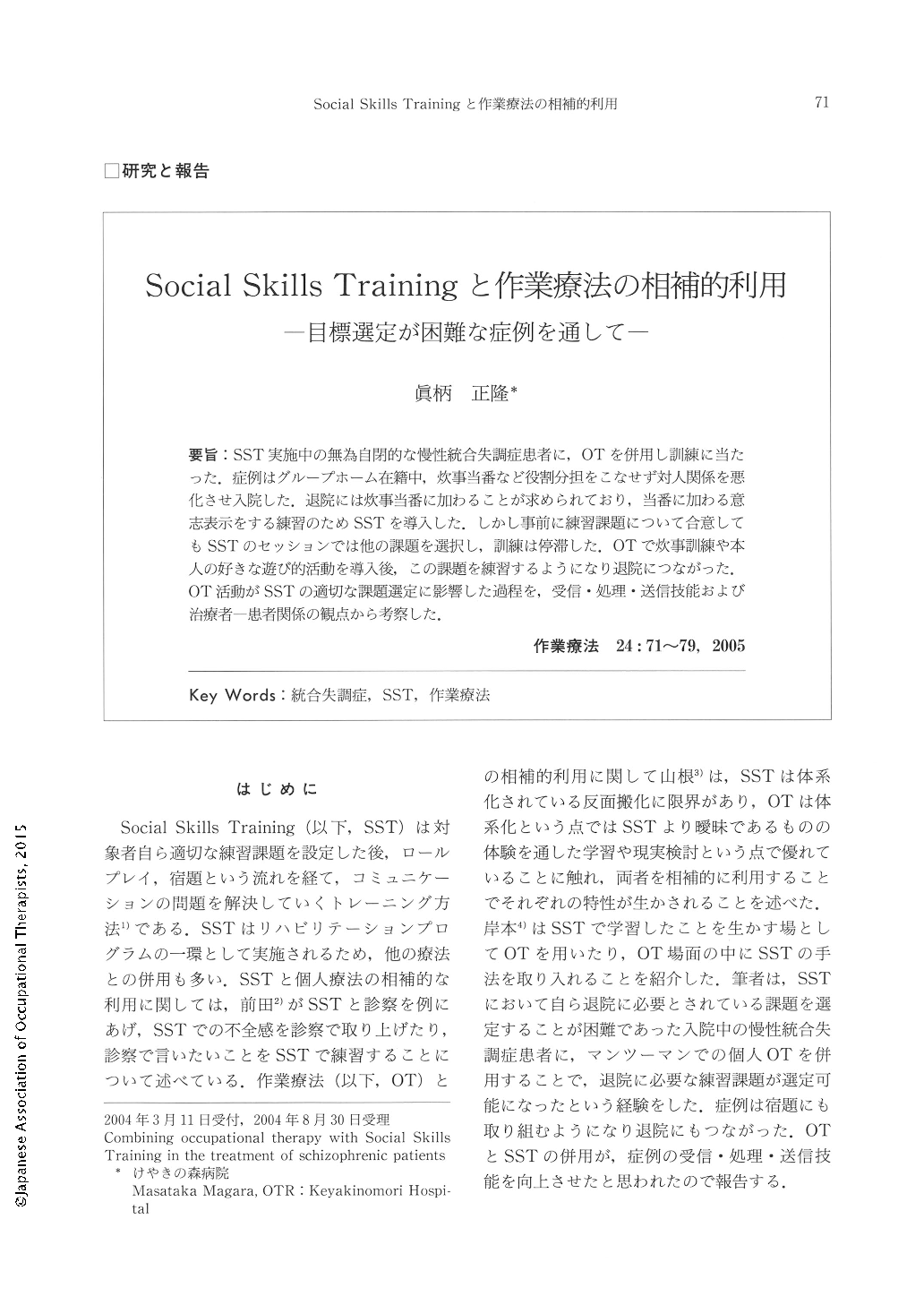Japanese
English
- 販売していません
- Abstract 文献概要
- 1ページ目 Look Inside
- 参考文献 Reference
要旨:SST実施中の無為自閉的な慢性統合失調症患者に,OTを併用し訓練に当たった.症例はグループホーム在籍中,炊事当番など役割分担をこなせず対人関係を悪化させ入院した.退院には炊事当番に加わることが求められており,当番に加わる意志表示をする練習のためSSTを導入した.しかし事前に練習課題について合意してもSSTのセッションでは他の課題を選択し,訓練は停滞した.OTで炊事訓練や本人の好きな遊び的活動を導入後,この課題を練習するようになり退院につながった.OT活動がSSTの適切な課題選定に影響した過程を,受信・処理・送信技能および治療者—患者関係の観点から考察した.
The purpose of this study is to discuss the therapeutic use of Occupational Therapy (OT) especially for the schizophrenic patient who has difficulty determining his/her own management skills in Social Skills Training (SST). This case involves a 41-years-old male with chronic schizophrenia, and other social withdrawal patients. He had lived in a group home for mental disorders, with four other members. In the group home, they lived an identifiable daily routine : cooking their dinner, washing up, cleaning house, etc. However, he had neglected his share of the work, which caused interpersonal problems within the group; in turn, the problem exacerbated a relapse, forcing him to reenter the hospital. In order for him to restore himself to group-home status, he needed to improve his communication skills and relationships with other members by using SST. The author, who was also his therapist in SST, provided individual OT programs for him. After the individual OT programs were completed, he came to demonstrate roll-play relationships with group home members. He then went on to acquire communication skills and achieve contact with other members, which enabled him to join in the group home's daily routine. In this case, SST and OT proved to be complimentary.

Copyright © 2005, Japanese Association of Occupational Therapists. All rights reserved.


